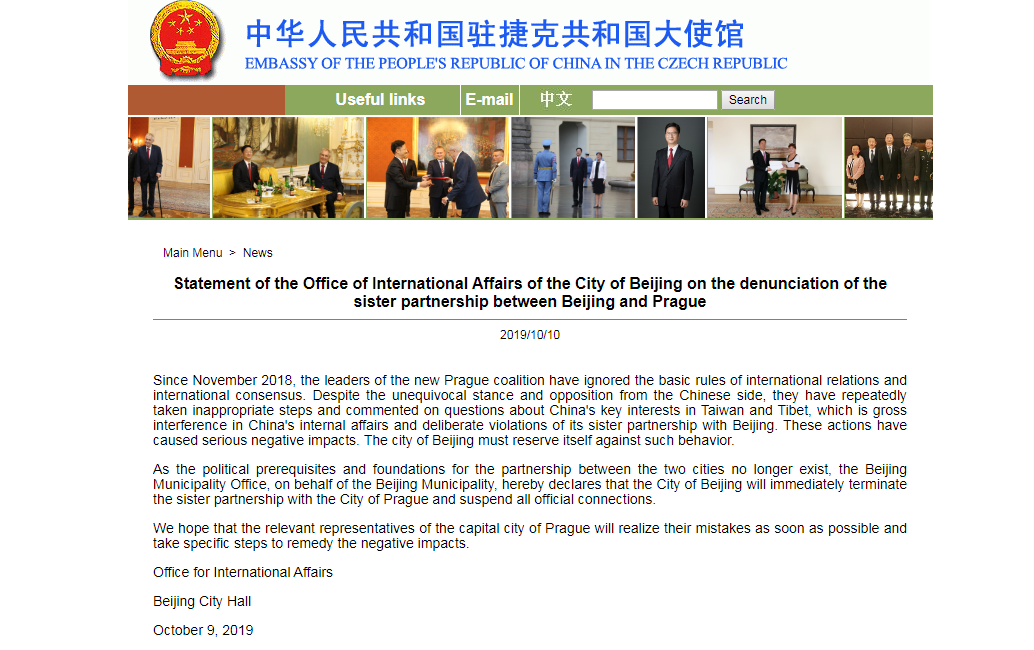Those who attempt to challenge the one-China principle on the Taiwan question are making themselves enemies of the 1.4 billion Chinese people and will have to pay a heavy price for their moves, said Chinese State Councilor and Foreign Minister Wang Yi on Monday when commenting on a Czech official's visit to Taiwan.
China has repeatedly said that it opposes countries with which it holds formal diplomatic ties conducting official exchanges with its Taiwan region.
Despite warnings from the Chinese embassy and Czech Republic's presidential office, Senate Speaker Milos Vystrcil – along with a team of 90 – started their six-day visit in the island from Sunday with so-called "trade mission."
The Senate speaker is seriously interfering in China's internal affairs and infringing on China's national sovereignty and territorial integrity, said the spokesperson for the Chinese Embassy in the Czech Republic, warning Vystrcil's move has violated the basic norms of international relations and bilateral political commitments.
According to experts, Vystrcil is the second-highest constitutional official in the Czech Republic and will meet regional Taiwan leaders, including Tsai Ing-wen.
Wang called the trip a provocation that China "will not sit by idly." He stressed that Taiwan is an inseparable part of China.
"Vystrcil apparently sees this trip to Taiwan as vital for the country's economic recovery, but it's extremely unlikely that any reciprocal investment between the Czech Republic and Taiwan could compensate for any loss incurred from the Chinese mainland," commented Bradley Blankenship, a Prague-based political analyst.
Yet this is not the first time that Prague has challenged the one-China principle, a diplomatic policy that China has practiced over years stressing that the government of the People's Republic of China is the sole legitimate government that represents the whole of China.

A screenshot of the statement of Beijing City Hall (Municipality) posted on the official website of the Chinese Embassy in the Czech Republic. /CGTN
A screenshot of the statement of Beijing City Hall (Municipality) posted on the official website of the Chinese Embassy in the Czech Republic. /CGTN
Last October, Beijing and Prague scrapped their three-year-old twinning deal triggered by the Czech capital's unilateral backing out of a clause on one-China policy with several major officials from Prague made "erroneous moves and inappropriate remarks" on major issues concerning Taiwan and Tibet; and months after, Shanghai, too, terminated its sister-city relationship with Prague.
"We hope that the relevant representatives of the capital city of Prague will realize their mistakes as soon as possible and take specific steps to remedy the negative impacts," read a statement from the Beijing Municipality Office.
Disagreement on the deal broke out soon after the municipal polls in November 2018 which saw Zdenek Hrib from the Czech Pirate Party being elected as the new mayor of Prague. Hrib called for amendments to the Beijing-Prague sister-city agreement suggesting the exclusion of the clause acknowledging the one-China policy.
(Cover photo: Taipei 101 skyscraper in Taipei, southeast China's Taiwan. /Xinhua)